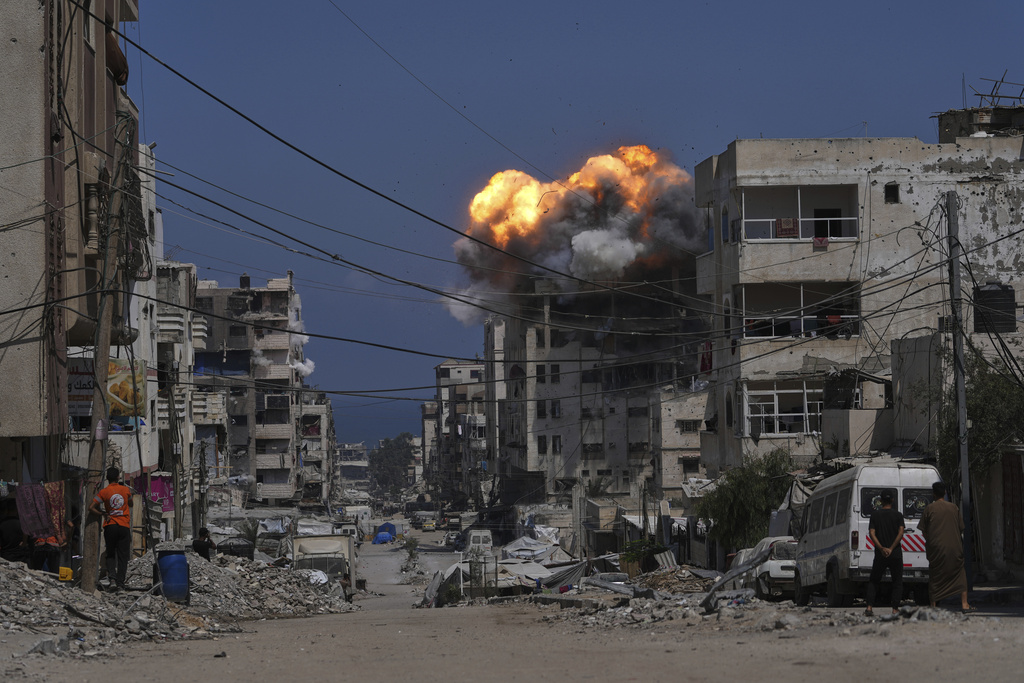Israel is poised to approve a sweeping military plan to seize vast swaths of the Gaza Strip over the next five months, displacing up to a million Palestinians and risking the lives of dozens of Israeli hostages, despite warnings from top military brass that the campaign could spiral into a drawn-out, bloody quagmire.
According to multiple Hebrew media reports, Prime Minister Binyamin Netanyahu is expected to secure cabinet approval Thursday evening for the first full reoccupation of Gaza since 2005. The operation would begin with an assault on Gaza City and move into the central Strip, pushing civilians southward toward the Mawasi “humanitarian zone.”
The goal, officials say, is twofold: crush what remains of Hamas and ratchet up pressure to release the roughly 50 hostages still in captivity, about 20 of whom are believed to be alive. But critics — including Israel’s own military chiefs — warn the strategy could backfire catastrophically, endangering the hostages, triggering mass casualties, and plunging the country into an unsustainable, open-ended occupation.
IDF Chief of Staff Lt. Gen. Eyal Zamir has reportedly warned Netanyahu in closed-door sessions that a full-scale conquest of Gaza would be a strategic misstep. “Occupying the Strip would drag Israel into a black hole,” Channel 12 quoted Zamir as saying, cautioning it would entail long-term governance over two million Palestinians and potentially years of guerrilla warfare.
Senior defense officials agree with Zamir, estimating the offensive could kill “dozens” of IDF soldiers and injure many more. Some compared it to America’s disastrous entanglement in Vietnam. “We could end up knowingly entering a Vietnam model,” one senior official told Channel 12.
Despite this, Netanyahu is expected to override objections. A meeting of the high-level security cabinet is scheduled for 6 p.m. Thursday, with most ministers predicted to back the plan. Shas leader Aryeh Deri and Foreign Minister Gideon Sa’ar may oppose it, but they are unlikely to shift the majority.
The operation would begin with an evacuation notice to Gaza City’s one million residents, allowing time to establish medical facilities and camps in the central Strip. In parallel, a humanitarian aid surge would be coordinated with the U.S., quadrupling current aid sites from four to sixteen.
By phase two, the IDF would launch a ground offensive, likely involving four to five divisions over several months. Kan News reports this would extend into central refugee camps, which have remained largely untouched by previous operations.
Channel 12 noted the U.S. may deliver a formal speech — possibly by President Trump — announcing a $1 billion humanitarian funding package to support the new aid corridor. Still, administration officials stressed that Washington does not support any Israeli move to annex Gaza territory.
The plan also includes the objective of encouraging “voluntary emigration” from Gaza. Israeli officials believe further southward displacement could create the conditions for Gazans to leave the territory — a strategy Egypt and Qatar have condemned.
An alternative proposal, reportedly favored by some military leaders, would have encircled Gaza City and central camps, cutting off aid and carrying out targeted strikes instead of a full invasion. But Netanyahu is said to have rejected that plan as too slow and ineffective.
Still, internal dissent within the IDF is growing. Maj. Gen. Yaniv Asor, head of the IDF Southern Command, publicly acknowledged deep disagreements among military leaders, calling them “professional disputes” born of genuine concern for Israel’s security.
According to Yediot Acharonot, Asor recently clashed with Israeli Air Force chief Maj. Gen. Tomer Bar, who has reportedly blocked some strikes due to surging civilian casualties. “You there in Tel Aviv are disconnected from what’s happening on the ground,” Asor allegedly told top brass during a tense video call.
President Trump has signaled he will not stand in Israel’s way. “It’s pretty much up to Israel,” he said earlier this week when asked about the full takeover of Gaza. Axios reported that Trump’s stance hardened after viewing a Hamas propaganda video showing a frail hostage, Evyatar David, forced to dig what appeared to be his own grave.
However, a U.S. official told Axios that while the administration will not block Israel’s plan, it does not support any permanent annexation of territory. Instead, the U.S. hopes a new military dynamic might revive stalled hostage negotiations or facilitate a broader post-war framework.
Those hopes remain slim. Israeli officials quoted by Kan said the chances of Hamas returning to the table before the operation begins are “almost zero.”
(YWN World Headquarters – NYC)











